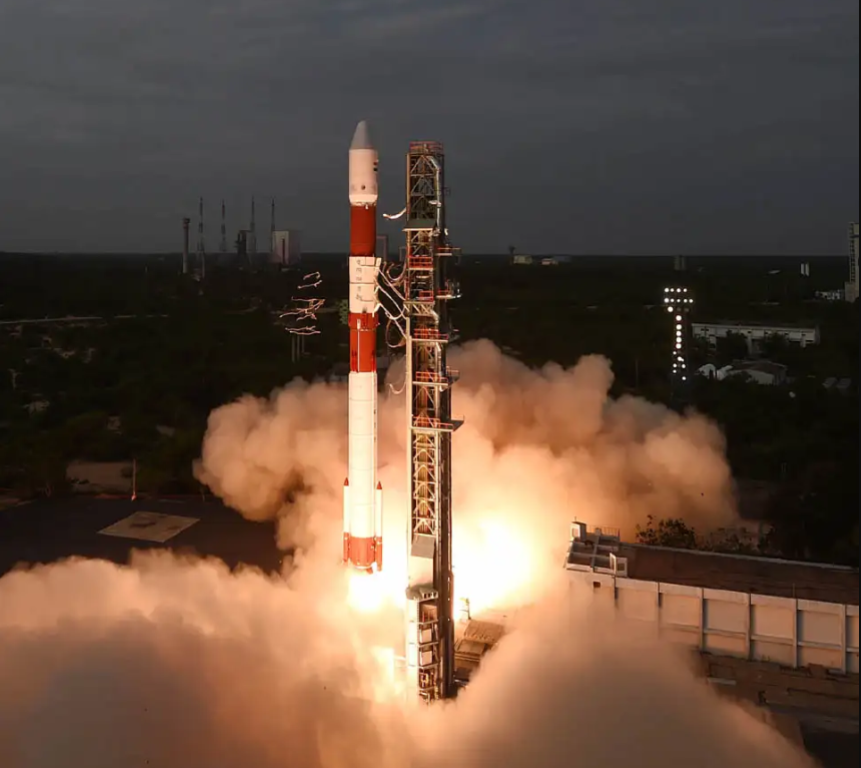
The countdown for Aditya-L1, a satellite mission to study the sun, has begun and the mission is scheduled to launch at 11.50am IST on 2 September from Satish Dhawan Space Centre in the Sriharikota Range in India.
After the historic landing of India’s Chandrayaan-3 spacecraft on the south pole of the moon, the solar mission aims to observe solar activities and their effects on space weather in real time.
The spacecraft carries seven payloads to observe the atmosphere, chromosphere and outermost layers of the sun, according to the Indian Space Research Organisation (ISRO). It will use electromagnetic and particle magnetic field detectors. Four of the seven payloads will carry out remote sensing of the sun and the rest are for in-situ observation.
The Aditya-L1 spacecraft will be placed in a halo orbit around the sun-earth system’s Lagrange point 1 (L1), around 1.5 million kilometres from the planet. “A satellite placed in the halo orbit around the L1 point has the major advantage of continuously viewing the Sun without occultation/eclipses,” ISRO said on its website.
Some of the main objectives of Aditya-L1’s mission include observing the “physics of solar corona and its heating mechanisms” and studying the drivers for space weather; for example, the origin, composition and dynamics of solar wind.
The European Space Agency (ESA) has supported the ISRO’s solar mission in two ways, according to the agency. One, the agency provides deep space communication services, and two, the ESA assisted ISRO with “the validation of important new flight dynamics software,” the ESA said on its website.

US Tariffs are shifting - will you react or anticipate?
Don’t let policy changes catch you off guard. Stay proactive with real-time data and expert analysis.
By GlobalData“ESA’s global network of deep space tracking stations and use of internationally recognised technical standards allows us to help our partners track, command and receive data from their spacecraft almost anywhere in the Solar System,” said Ramesh Chellathurai, ESA service manager and ESA cross-support liaison officer for ISRO.
This mission would be an important step forward for India’s space programme. The launch will be telecast on ISRO’s YouTube channel on 2 September.



